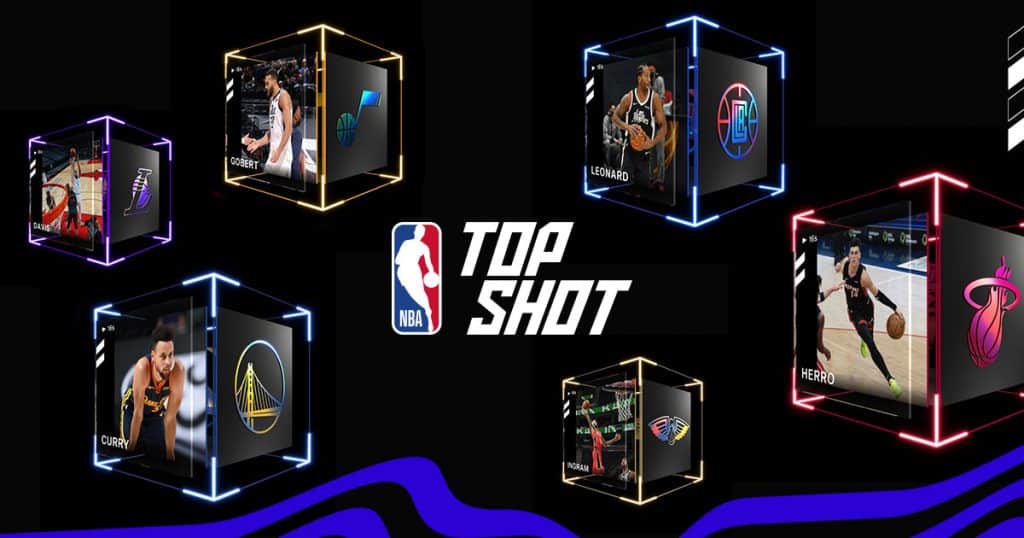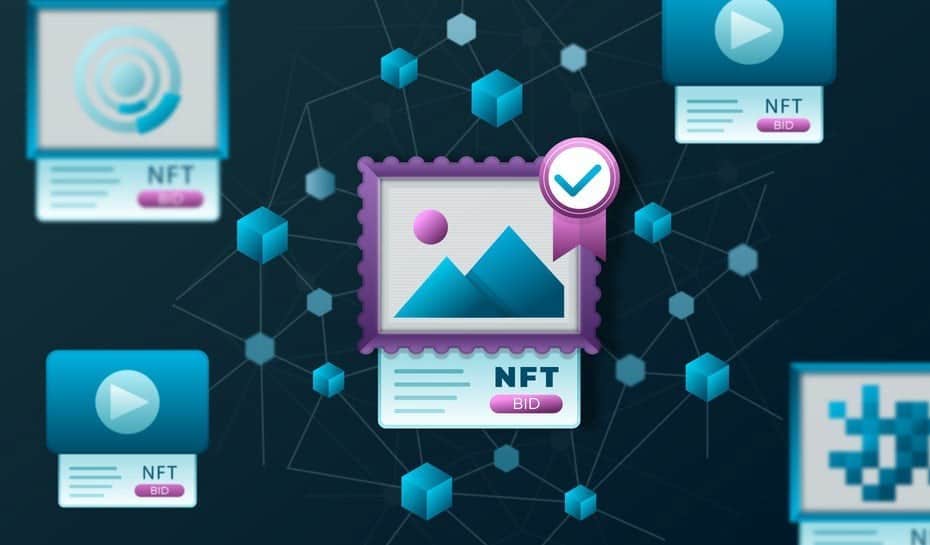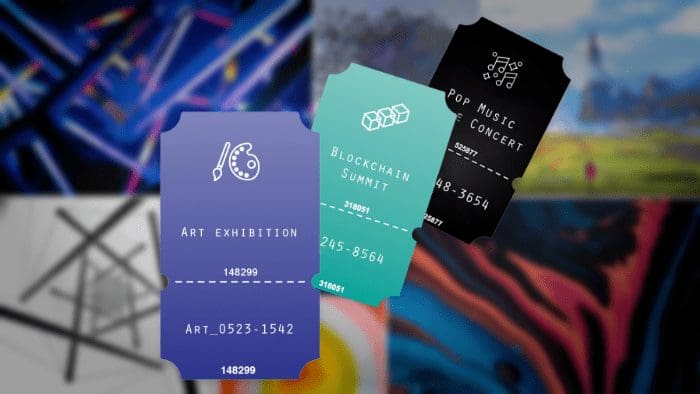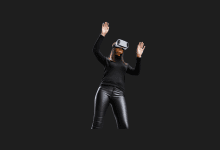NFT Usage Areas: Beyond Digital Art and Collectibles

When NFTs are mentioned, the immediate association for many is extraordinary artwork and impressive sales figures. The media often highlights the most expensive NFTs, and unique stories like the recent sale of a Dutch young man’s soul through an NFT have captured public attention. However, the utility of NFTs extends far beyond these limited examples.
NFTs have become an indispensable concept for many, and their influence is expected to grow in the coming years. Binance, as the world’s largest exchange, provides a valuable platform for tracking the NFT and crypto market. Additionally, users can take advantage of the exchange’s low commission rates when buying or selling NFTs and cryptocurrencies.
1.Art NFTs

Art NFTs, also known as crypto art or NFT art, represent one of the most common use cases for non-fungible tokens. When NFTs are mentioned, many people immediately think of extraordinary digital paintings. In this context, NFTs serve to establish ownership and authenticate the originality of artworks. Through blockchain-based systems, artists can assert their ownership of the work and even profit from its sale.
The ownership of an NFT-linked digital artwork changes hands when the artist sells it. This system addresses the challenge of establishing ownership for digital images circulating on the internet, where it’s often difficult to ascertain the true creator. Blockchain-based digital certificates play a crucial role in confirming the authenticity of Art NFTs.
Art NFTs have the potential to appreciate or depreciate in value, and artists can continue to earn royalties from subsequent sales even after selling the initial NFT. For instance, the artist known as Pak set a record by selling the most expensive NFT for $93 million, showcasing the significant impact of art NFTs in the digital art market.
2.Gaming NFTs

One of the most prevalent applications of NFTs is within the gaming category. NFT games enable players to generate valuable NFTs by enhancing their characters, plots, or cards. The functionality of these NFTs varies based on the game category, as they can either function independently or enable users to customize and develop their assets.
Participants in NFT games have the flexibility to sell, rent, trade, and even engage in staking with the NFTs they earn during gameplay. Additionally, smart contracts are often implemented to safeguard players’ interests. Gaming NFTs have opened up opportunities for many to achieve substantial earnings, with these games typically operating on a play-to-win principle.
3.Collection NFTs

Among the most popular NFT applications, Collectible NFTs deserve special mention. The spotlight on Collectible NFTs grew when the CEO of Twitter converted his first tweet into an NFT and sold it.
Subsequently, there was a rapid surge in interest with collectibles from the Ethereum-based virtual game CryptoKitties. However, NBA Top Shot cards emerged as the most notable and popular NFT collection.
Collectible NFTs can encompass an artist’s private collection or comprise cards from a recognized brand or organization. These unique and rare items can present attractive options for NFT investors seeking distinctive and valuable digital assets.
4.Real estate

The real estate sector is another common area where NFTs find application. NFT technology plays a crucial role in establishing ownership of digital real estate or virtual land. Additionally, it is anticipated that NFTs will become even more essential with the introduction of land leasing options in the future.
Within the real estate sector, NFTs offer a secure means of conducting transactions without the need for intermediaries. Similar to real-world real estate transactions, digital real estate purchases in the virtual universe may involve multiple intermediaries. NFTs facilitate secure and swift transactions in these digital realms, providing users with a reliable method for acquiring and transferring digital properties.
5.Finance NFTs

Finance and credit represent another prominent category in the widespread usage of NFTs. Investors have the opportunity to generate passive income through NFTs, and there is an expectation that NFT loans will gain popularity in the near future. Currently, staking NFTs is one of the most prevalent uses within the realm of financial NFTs.
6.License, Certificate and Documents

NFTs, known for indicating ownership, can also be utilized for various documents such as certificates and licenses. There is a vision that NFTs will find applications in a broad spectrum of fields, ranging from birth certificates to educational certificates, diplomas, and identity cards. Although this system is still in its early stages, it is anticipated that it will become widespread in the near future.
The use of NFTs for document verification is expected to prevent crimes such as identity theft and the issuance of forged documents. Additionally, processes that often burden individuals or systems, such as registration or document verification, are anticipated to become significantly more streamlined. For instance, the adoption of NFT-based digital vaccination documents had already begun in San Marino.
7.Music

The music industry is becoming one of the most common arenas for NFT usage. While the incorporation of NFT in the music industry is a relatively recent development, it is anticipated that both artists and listeners will enjoy numerous benefits in the future. How is this expected to unfold?
For amateur artists, generating revenue on platforms like YouTube Music, Spotify, or Fizy can be quite challenging. NFT-based music applications aim to connect artists and listeners directly, eliminating intermediaries. While these applications offer various options, the most popular method for earning income is through copyright.
Artists, for instance, can earn direct income by selling the copyright to their songs. Moreover, a certain percentage of the earnings from each sale of the song is paid directly to the artist. The primary advantage of such applications lies in bypassing third-party platforms.
8.Fashion

Numerous companies, ranging from globally renowned luxury clothing brands to watch manufacturers, have swiftly embraced the world of NFT.
Adidas, for instance, launched its NFT Into the Metaverse collection a few months ago, generating over 20 million dollars within a few hours. Additionally, renowned brands such as Gucci, Nike, and Louis Vuitton have also made rapid entries into the NFT space.
The use of NFT in the fashion world extends to various areas. Brands, for instance, sell their digital collections as NFTs, providing users with the opportunity to curate their collections.
Furthermore, by incorporating NFT codes on physical garments, brands can instantly convey a wealth of information, including production details, timelines, and originality. The widespread adoption of NFTs is also anticipated in logistics and procurement within the fashion industry.
Ticket

Sports, music, art, travel, museum etc. We buy tickets for almost every activity. However, there may be many problems such as fake tickets or tickets falling into the black market. NFT, on the other hand, provides a good opportunity to question the authenticity of tickets issued for different sports and events.
Accordingly, each ticket will be registered with the NFT, where it is unique and original, and ticket registrations will be open to everyone. Combining NFT and blockchain technology, this system will ensure that fake ticket exchanges are terminated.
You may also like this content
- Adidas’ Surprise NFT and Metaverse Decisions
- Expert Insights on Blockchain, NFTs, and the Future of the Metaverse
- Binance Invests In This NFT And Metaverse Coin!
Follow us on TWITTER (X) and be instantly informed about the latest developments…











